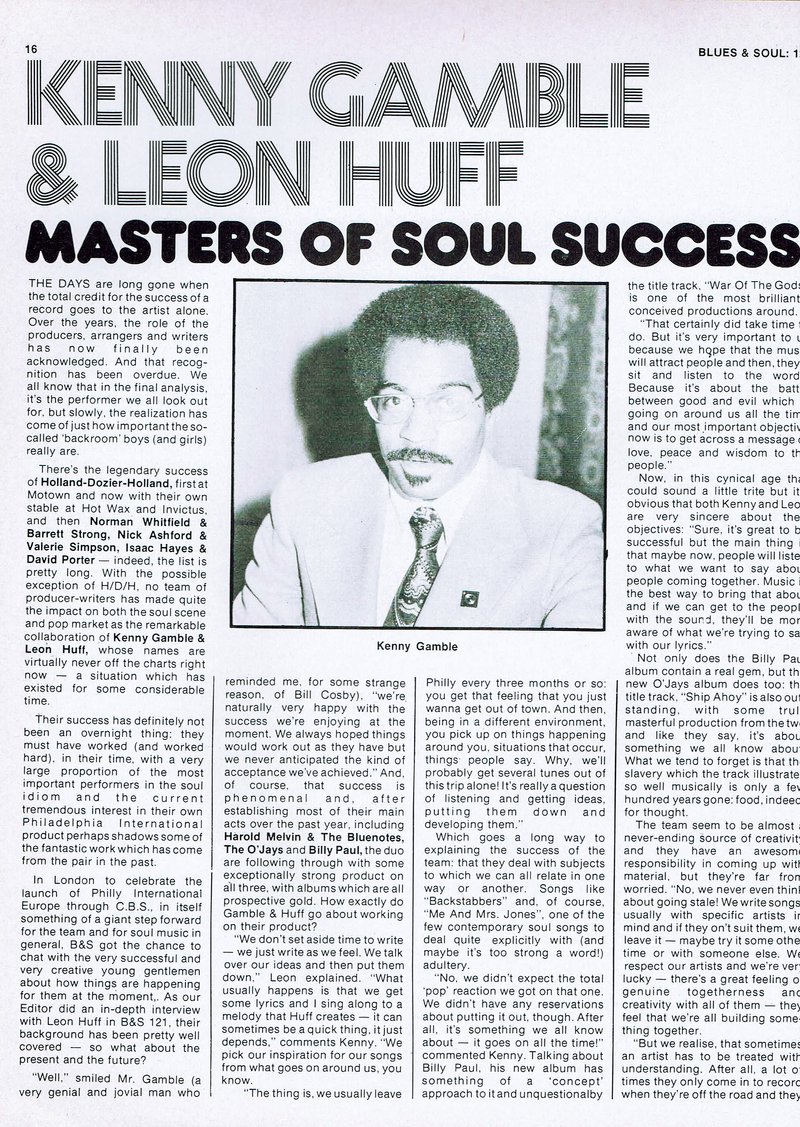GAMBLE & HUFF

Kenneth Gamble and Leon A. Huff are an American songwriting and production team credited for developing the Philadelphia soul music genre (also known as Philly sound) of the 1970s. In addition to forming their own label, Philadelphia International Records, Gamble and Huff have written and produced 175 gold and platinum records, earning them an induction into the Rock and Roll Hall of Fame in the non-performer category in March 2008.
In 1964, before there was "Gamble & Huff" there was "Gamble & Ross." Gamble was discovered and managed by Jerry Ross when Gamble was only 17 years old and they collaborated for many years. Gamble teamed up with Leon Huff (keyboards) for the first time on a recording for Candy & The Kisses. Ross then signed Gamble to Columbia Records in 1963 as a solo recording artist, releasing "You Don't Know What You Got Until You Lose It". Gamble & Ross & Huff collaborated on the hit song "I'm Gonna Make You Love Me", originally recorded by Jay & The Techniques, who were a Jerry Ross group, and later covered by Dee Dee Warwick and later by Diana Ross & The Supremes and The Temptations.
In 1967 they produced their first Top 5 hit: "Expressway to Your Heart" by The Soul Survivors. They subsequently worked with Atlantic Records artists Archie Bell & the Drells, Wilson Pickett, Dusty Springfield, and The Sweet Inspirations, as well as with Mercury artists Jerry Butler and Dee Dee Warwick, scoring numerous hits along the way.
Gamble and Huff's Philadelphia soul sound evolved from the simpler arrangements of the late-1960s into a style featuring lush strings, thumping basslines, and sliding hi-hat rhythms—elements that soon became the distinguishing characteristics of a new style of music called disco.
Nearly all of the Philadelphia International records featured the work of the label's in-house band of studio musicians, MFSB (Mother Father Sister Brother). MFSB cut a number of successful instrumental albums and singles written and produced by the Gamble & Huff team and arranged by Bobby Martin including the 1974 number-one hit "TSOP (The Sound of Philadelphia)", now best known as the theme song from the American television show Soul Train.